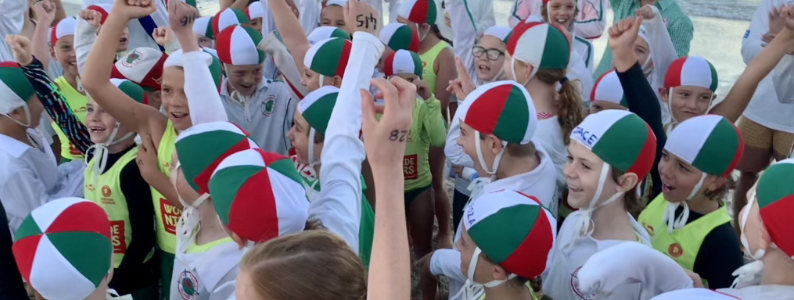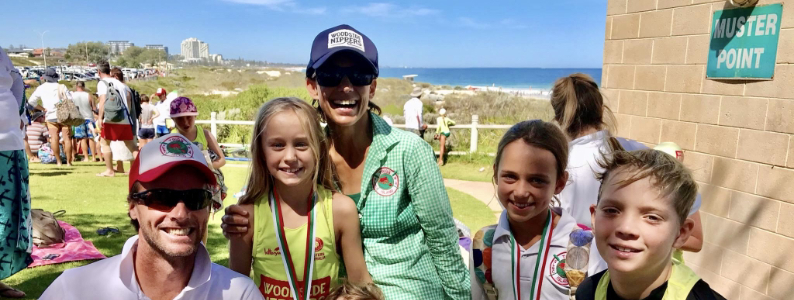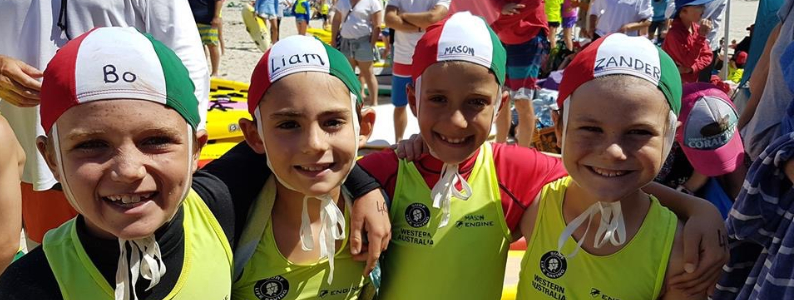TISLSC is committed to the health, safety and well-being of all its members and is dedicated to providing a safe environment for participating in surf lifesaving activities.
The Member Protection Policy aims to assist SLSA to uphold its core values and create a safe, fair and inclusive environment for everyone associated with SLS. It sets out SLS’ commitment to ensure that every person involved in SLS is treated with respect and dignity and protected from discrimination, Harassment and Abuse. It also seeks to ensure that everyone involved in SLS is aware of their legal and ethical rights and responsibilities, as well as the standards of behaviour expected of them. All SLS Entities are committed to the health, safety and general well-being of everyone involved in SLS. That is the rationale for this Policy.
All SLSA members, particularly age managers, coaches, officials, leaders, trainers and management personnel, have a responsibility to provide safeguards dedicated to the well-being of other members. The abuse of youth members, by other members or external sources, is not acceptable and SLSA demands all incidents of such abuse be reported immediately to the appropriate authorities.
Where such a protective procedure does not exist SLSA encourages the use of the SLSA Regulations 4 – Discipline and Judicial; and SLSA Regulation 4.1 – Judiciary Matters; for addressing reports, notification or accusations of improper behaviour by an SLSA member.
Abuse is defined as anything which individuals or organisations do, or fail to do, that directly or indirectly harms people or damages their prospects of safe and healthy development. This includes physical abuse, emotional abuse, inappropriate training, inappropriate touching, sexual abuse and neglect. (National Association for the Prevention of Child Abuse and Neglect, 2000).

Code of Conduct
TISLSC endorses the following Code of Conduct for SLSA members. As an SLSA member you should meet the following requirements in regard to your conduct during any SLSA sanctioned activity.
- Respect the rights, dignity, and worth of others.
- Be fair, considerate, and honest in all dealings with others.
- Be professional, and accept responsibility for, your actions.
- Make a commitment to providing quality service.
- Be aware of, and maintain an uncompromising adhesion to, SLSA standards, rules, regulations and policies.
- Operate within the rules of surf lifesaving including national and international guidelines that govern SLSA.
TISLSC expects all members, supporters, advisers and associates of SLSA to abide by a Code of Conduct which upholds the principles and values of the organisation and this Member Protection Policy. Members should recognise that at all times they have a responsibility to a duty of care to all members of SLSA. Specifically:-
- Understand the possible consequences if you breach SLSA’s Member Protection Policy or Code of Conduct.
- Immediately report any breaches of the SLSA Member Protection Policy or Code of Conduct to the appropriate authority.
- Refrain from any form of abuse towards others.
- Refrain from any form of harassment towards others.
- Provide a safe environment for the conduct of the activity in accordance with relevant SLSA policy.
- Show concern and caution towards others who may be sick or injured.
- Be a positive role model.
Risk Minimisation Measures
Do not engage, or allow others to engage, in any of the following:
- Abusive initiation ceremonies
- Inappropriate undressing/dressing in front of youths
- Invading the privacy of youths while showering or toileting
- Photographing youths while undressing/dressing, showering, or toileting
- Sleeping in closed quarters with youths without a second adult representative, parent etc.
- Aggressive, physically distressing, or sexually provocative activities
- Sexually suggestive comments about or to a youth
- Inappropriate or intrusive touching of a youth
- Joking, ridiculing, rejecting, isolating, or taking the ‘mickey’ out of a youth member(s).
While many of the above points may not be legally actionable, they are against the principles and values of SLSA and are guarded against in the Code of Conduct.
TISLSC aims to foster teamwork and group cohesion between leaders allowing for the ability to point out inappropriate attitudes and behaviour by members of the team. TISLSC does not tolerate abusive or inappropriate behaviour. In the event that you witness, hear about, or are the victim of abuse you are bound by the Code of Conduct to report the incident to our Member Protection officer immediately.
The Member Protection Officer for Trigg Island SLSC is Bronwyn Meldrum – 9447 3556
In the event that you are unable to contact the above, contact any member of the Board of Directors to refer the matter in complete confidence:
Cas Ryan – 0424 576 656
Hayden Marchetto – 0411 747 454
Pete Savage – 0400 037 090
Matt Hort – 0455 501 435
Chris Davies – 0419 918 283
Jeremy Hunter – 0402 244 754
Grant Rosman – 0436 851 508
Mike Boisvert – 0400 113 823
The following guidelines will be followed in the event of suspected abuse: this needs to be checked at our end.
You have suspicion on reasonable grounds:
- When a nipper/youth tells you they have been abused.
- When someone else tells you a nipper/youth has been abused.
- A nipper/youth tells you they know someone who has been abused (often they are referring to themselves).
- You observe a nipper/youth member’s behaviour and/or injuries etc
- Knowledge of nipper/youth members leads you to suspect abuse.
- You observe a member’s abuse of another member.
If you suspect a nipper/youth member has been abused follow these procedures:
- Ensure the youth is safe (if they are in your care).
- Maintain the safety of other youth members in accordance with SLSA
- Regulations and the Code of Conduct.
- Obtain and document the following information to provide to the state-appointed SLSA representative designated as a liaison on member protection issues:
- The youth’s name, age, and address
- Your reason for suspecting abuse (ie. observation, injury, information)
- Your assessment of the danger posed to the youth including information pertaining to the alleged perpetrator.
- What arrangements, if any, exist for the immediate protection of the youth.
- What involvement, if any, other agencies have in dealing with the suspected member protection issues.
The Member Protection Officer will direct and confidentially make contact with the Chief Executive at SLSWA. The Chief Executive is tasked with advising you on such issues as parental involvement, police involvement, medical treatment, SLSA’s position, and the state authority’s role. Remember, if in doubt, seek immediate advice.
In the event that you suspect abuse by someone who is not an SLSA member (eg. family member, club visitor) advise the state Chief Executive to seek appropriate advice.

Procedure of addressing accusations for inappropriate behaviour by SLSA Leaders/Members
Any person suspected of breaching any of the SLSA Member Protection Policy and Code of Conduct is to be reported to the Chief Executive at the WA surf lifesaving office when all known facts and suspicions are to be confided in that officer.
Anonymous claims of abuse or breaches of the above Code and policies are to be taken seriously and immediately reported to the Chief Executive at the WA surf lifesaving office for investigation.
If the issue involves suspected abuse then:
- The person reporting the suspected breach will advise the state Chief Executive immediately on being made suspicious and declare all available details.
- The Chief Executive shall notify the relevant state protection authority and receive advice about the ensuing course of action for addressing the reported breach of SLSA’s Member Protection Policy.
- The Chief Executive will notify the suspected member in writing counter-signed by the state president delivered to the suspected member, when it will be advised that an inquiry will be instigated.
- The suspected member shall be afforded rights of natural justice during the course of the investigation where the state Chief Executive shall enact appropriate monitoring and modification of the suspected member’s activities in surf lifesaving.
- The suspected member will be given the opportunity to respond to the complaint. This should be carried out at a meeting where two members, appointed by the state Chief Executive, will carry out an interview.
- The parents/guardians of any member identified as a suspected victim of abuse will be encouraged to contact the state Chief Executive for advice on professional support services.
Action on Abuse reported directly to SLSA
In the event that suspected abuse of an SLSA member is reported in the first instance to SLSA then the following actions will occur:
- The SLSA Grievance Officer/ Harassment Contact Officer will conduct a preliminary investigation and report confidentially to the SLSA CEO as to whether abuse is suspected.
- If abuse is suspected the SLSA CEO will report the matter immediately and confidentially to the respective state centre responsible for investigating the matter in accordance with this policy and procedures.
SLSA Rights & Responsibilities
Surf Life Saving Australia youth members, leaders and the organisation reserve certain rights as members and carry with them certain responsibilities.
Youth Members have the right:
- To be safe;
- To be listened to;
- To be respected;
- To privacy;
- To take calculated risks in a protective environment;
- To an inclusive environment;
- To be referred to professional help if needed;
- To be protected from abuse by other members or outside sources.
Youth members are responsible for:
- Showing respect to other youth members and SLSA leaders;
- Keeping themselves safe;
- Accurately report inappropriate behaviour or risky situations for youth members
SLSA leaders have the right to:
- Access to ongoing training and information on all aspects of leading/managing surf lifesaving activities for youths, particularly member protection;
- Support in the reporting of suspected abuse;
- Access to professional support services;
- Fair and equitable treatment by SLSA according to SLSA
SLSA leaders are responsible for:
- Fostering team-work to ensure the safety of youth members in their
- Using appropriate team management behaviour;
- Responding to youth members’ statements concerns about alleged abuse;
- Ensuring the rights and responsibilities of youth members are enforced;
- Reporting suspected abuse to the appropriate SLSA authority;
- Not abusing members physically, emotionally or sexually;
- Maintaining confidentiality about sensitive information as designated by the appropriate SLSA authority.

The Working with Children Check
The WWCC is managed by the West Australian Department of Communities Screening Unit and involves a national criminal history check and review of findings of workplace misconduct.
The WWC Check aims to protect children by:
- Deterring people from applying to work with children where they have a relevant charge or conviction on their criminal record that indicates they may harm a child;
- Detecting new charges and convictions of those people who hold a current WWC Card and preventing them from continuing to engage in child-related work where their criminal record and behavior indicates they may harm a child; and
- Protecting children by creating awareness that child safety is a whole community responsibility.
The result of a WWCC is either a clearance to work with children for three years, or a bar against working with children. Cleared applicants are subject to ongoing monitoring, and relevant new records may lead to the clearance being revoked.
All Surf Life Saving (SLS) members and employees (over the age of 18 years) require a Working With Children Check if they are undertaking a child-related role. However, there are a number of exemptions, which are explained below.
Roles within Surf Life Saving constitute child-related work
Some of the roles within Trigg Island SLSC that require a WWCC include:
- Member Protection and Information Officers / Grievance Officers
- Board of Directors
- Age Manager / Age Manager Assistant
- Trainers, Assessors, Coaches and Officials
- Patrolling members over the age of 18
- Parents who attend overnight camps
Exemptions for the Working With Children Check
The exemptions under the WWCC which are most relevant to Trigg Island SLSC include:
- Children (under the age of 18)
- Parents of Nipper and Youth members

